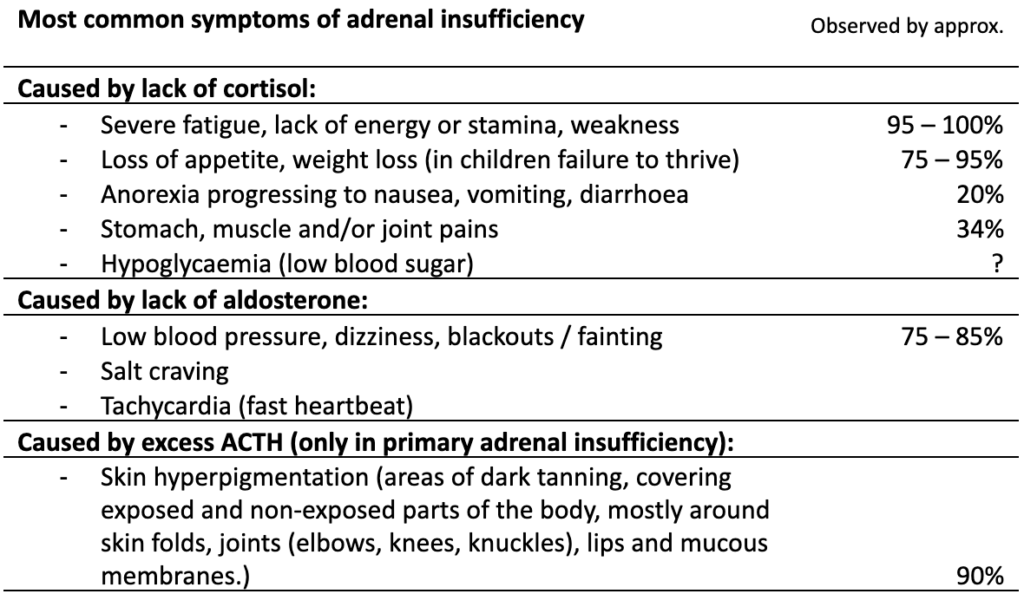3. Symptoms
Symptoms of adrenal insufficiency are mostly nonspecific and could be caused for a variety of reasons. They begin and progress slowly and are usually overlooked for a long time; the average time from symptom onset to diagnosis is 5 years.
Not every person experiences the same symptoms, and (depending on the cause of the adrenal insufficiency) a variety of other symptoms may be present.

Table 2: Most common symptoms of adrenal insufficiency
Adrenal insufficiency can also cause irritability, lack of concentration, memory impairment, confusion, apathy and depression, which are often attributed to stress or other pre-existing conditions. People living with adrenal insufficiency are often diagnosed and treated for other chronic conditions (e.g. other autoimmune disorders, asthma, depression) which may mask the symptoms.
Because the symptoms progress slowly, they are often overlooked until a stressful event such as an acute illness (fever, diarrhoea, flu) or an accident causes them to become suddenly more pronounced. This is called an Addisonian crisis, adrenal crisis or acute adrenal insufficiency.
> NEXT CHAPTER
> CHAPTER OVERVIEW
Anatomy/Physiology | Types of Adrenal Insufficiency | Symptoms | Testing/Diagnosis | Treatment | Stress dosing/Sick day Management | Adrenal Crisis | Quality of Life and Risks | Other Conditions and Drugs | Long-term Management | Suggested Reading | Literature/References
Author: Gisela Spallek, MD PhD
Edited by Maria Stewart, Director of AIC and deputy editor Des Rolph, Associate Director of AIC

